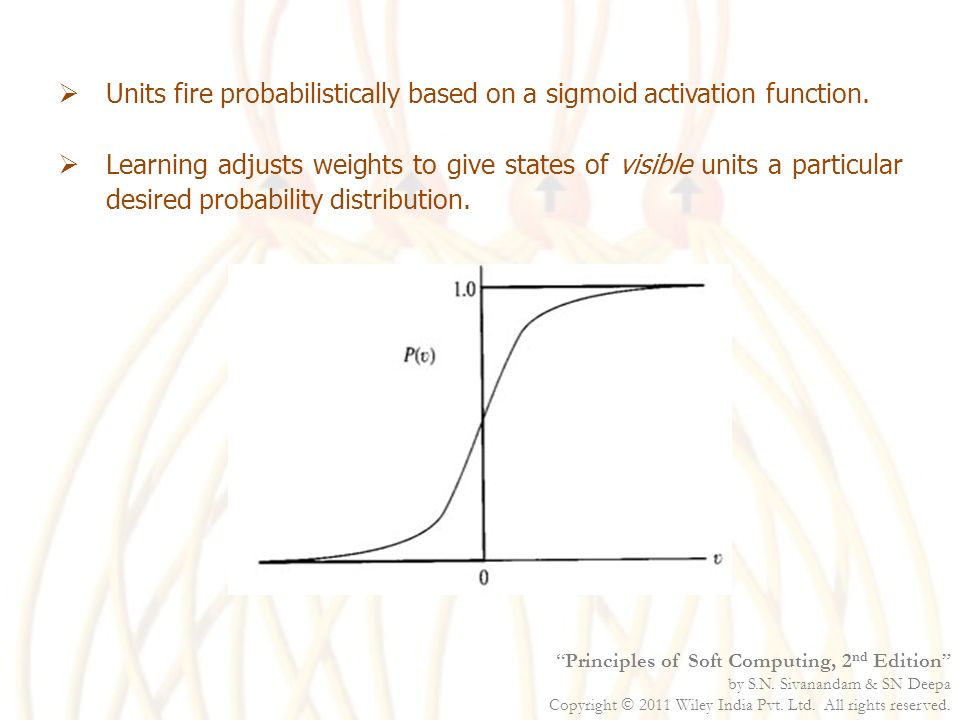Principles Of Soft Computing Sivanandam Deepa Ebook Download
Nov 24, 2010 Chapter 19. MATLAB Environment for Soft Computing Techniques Bibliography Sample Question Paper 1 Sample Question Paper 2 Sample Question Paper 3 Sample Question Paper 4 Sample Question Paper 5 Index Printed Pages: 748. ISBN 10: / ISBN 13: 410. Principles of Soft Computing. Principles of soft computing sivanandam deepa free pdf download mediafire 5000 results found, page 1 from 500 for ' principles of soft computing sivanandam deepa free pdf download ' Principles of Accounting, 11 Edition at free ebook download net (22.31 MB).
Author by: S.N.Sivanandam & S.N.Deepa Languange: en Publisher by: John Wiley & Sons Format Available: PDF, ePub, Mobi Total Read: 61 Total Download: 528 File Size: 55,9 Mb Description: Market_Desc: B. Tech (UG) students of CSE, IT, ECE College Libraries Research Scholars Operational Research Management Sector Special Features: Dr. Sivanandam has published 12 books He has delivered around 150 special lectures of different specialization in Summer/Winter school and also in various Engineering colleges He has guided and co guided 30 PhD research works and at present 9 PhD research scholars are working under him The total number of technical publications in International/National Journals/Conferences is around 700 He has also received Certificate of Merit 2005-2006 for his paper from The Institution of Engineers (India) He has chaired 7 International Conferences and 30 National Conferences. He is a member of various professional bodies like IE (India), ISTE, CSI, ACS and SSI. He is a technical advisor for various reputed industries and engineering institutions His research areas include Modeling and Simulation, Neural Networks, Fuzzy Systems and Genetic Algorithm, Pattern Recognition, Multidimensional system analysis, Linear and Nonlinear control system, Signal and Image processing, Control System, Power system, Numerical methods, Parallel Computing, Data Mining and Database Security About The Book: This book is meant for a wide range of readers who wish to learn the basic concepts of soft computing. It can also be helpful for programmers, researchers and management experts who use soft computing techniques. The basic concepts of soft computing are dealt in detail with the relevant information and knowledge available for understanding the computing process.
The various neural network concepts are explained with examples, highlighting the difference between various architectures. Fuzzy logic techniques have been clearly dealt with suitable examples. Genetic algorithm operators and the various classifications have been discussed in lucid manner, so that a beginner can understand the concepts with minimal effort. Author by: AJOY KUMAR RAY Languange: en Publisher by: PHI Learning Pvt. Format Available: PDF, ePub, Mobi Total Read: 49 Total Download: 621 File Size: 46,8 Mb Description: This comprehensive yet accessible text provides a good introduction to the fundamental concepts of Information Technology and skillfully elaborates on their applications, covering in the process the entire spectrum of IT related topics. Organized into three parts, the book offers an insightful analysis of the subject, explaining the concepts through suitable illustrations.

Sure cuts alot 2 serial number cracking. Part I covers basic issues and concepts of Internet and the techniques of acquiring, storing, structuring and managing information that may involve images, text files and video data. The reader is exposed to both centralized and distributed database systems. Part II deals with the core topics in developing information systems which are based on audio and speech compression, multimedia communication techniques, and soft computing for analysis and interpretation of data. Part III focusses on a number of application areas-as remote sensing, telemedicine, e-commerce, cybermediary and rural development-besides the traditional engineering disciplines, highlighting their social impacts. The book is intended for undergraduate and postgraduate students of information technology, computer science as well as electronics and electrical communication engineering. It should also serve as an excellent reference for professionals in the IT field.